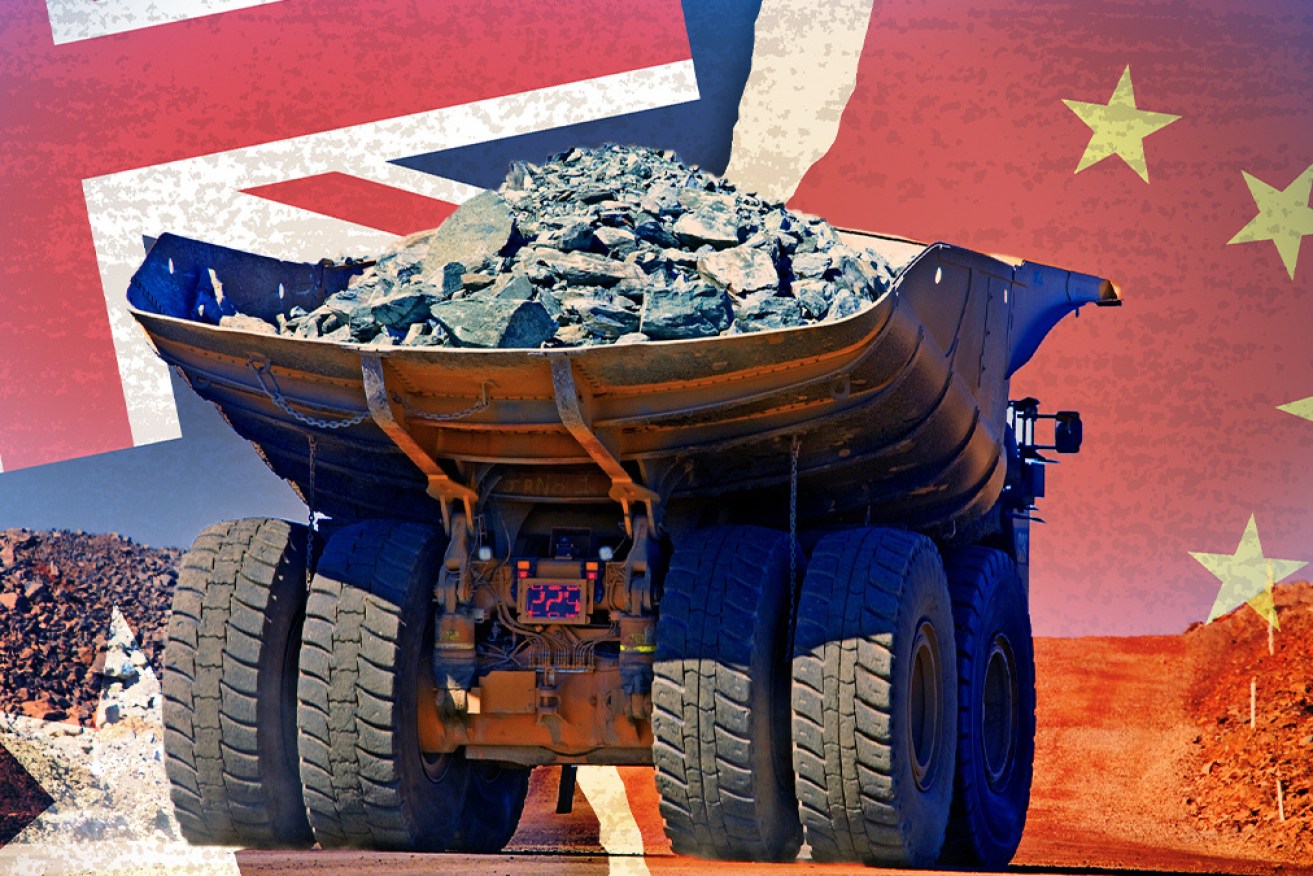China’s trade war on Australia takes turn for the worse as iron ore plummets


China's efforts to punish Australia are growing as iron ore prices plummet. Photo: TND
China’s trade war against Australia is taking a turn for the worse as iron prices plummet from record highs, exposing the economy to new pain.
Iron ore has remained the one bright spot in Australia’s relationship with China over the past year, with skyrocketing prices driving billions of dollars into the economy and offsetting restrictions on other exports.
But iron prices have now fallen from a July peak of $300 a tonne to just $228 on Thursday night as China pulls back its steel production.
The move is part of a bigger effort from China to end its reliance on our iron ore and punish Australia for failing to toe the Beijing line on human rights, the origins of COVID-19 and telecommunications giant Huawei.
China’s restrictions on other exports – including coal, copper, beef, wine, cotton, barley, wood and lobsters – cost Australia $6.6 billion from June 2020 to February 2021, according to University of Adelaide data.
That cost could blowout to $23 billion if the restrictions grind exports to zero over a 12 month period.
The impact will be felt most in the value of the Australian dollar and tax revenues reaped by governments, economist Saul Eslake told TND.
Mr Eslake said the falling iron ore prices will probably continue for at least six months and expose Australia to the costs of the trade war.
“How far iron prices fall depends on how much China is prepared to wind back its steel production,” Mr Eslake said.
“I’m not sure we would plunge to [trade] deficits necessarily, but our surpluses will be smaller.”
Still well above average
The annualised rate of restricted exports to China has fallen from $25 billion in 2019 to $5.5 billion since the trade war began, Mr Eslake said.
That’s more, in total, than the value of Australia’s iron ore trade to China.
It should be noted that at $228 iron ore prices are still well above long term averages of closer to $68.
That said, when iron prices were lower Australia was selling many other goods into China that have ground to a halt under the current trade war.
The only things Australia is selling more to China today than a year ago are iron, gold, wool and some base metals, Mr Eslake said.
And because iron is the vast majority of exports to China, falls in price have an outsized impact on the Australian economy.
In June, when prices peaked, Australia sold about $1 billion in iron ore to China, according to Australian Bureau of Statistics (ABS) data.
Mr Eslake said the impact on the Australian economy will show up in a lower value for the Australian dollar and a big hit to government coffers.
The Australian government has been raking in billions in tax revenue in the latest iron ore price boom, money that helped fund the COVID recovery.
Australia has notoriously conservative iron ore price estimates, so falling prices won’t throw the budget into disarray.
But it will limit the willingness of the government to hand out more money to support people affected by the worsening Delta variant outbreaks.
The budget makes about $500 million in tax for every $10 rise in iron ore prices, but the opposite happens when prices fall.
Diversifying with mixed results
Australian exporters are looking to markets outside China, but it’s having mixed results so far, researchers at the University of Adelaide believe.
In a July paper examining how the trade war has affected the economy, former Department of Foreign Affairs and Trade officials Ron Wickers, Mike Adams and Nicolas Brown said barley has been a success story.
But Australian companies aren’t earning as much as they were in China.
“Barley is a success story, albeit at a cost of lower returns, but industries like wine and rock lobster have struggled,” they concluded.
“Coal has been sold at substantial discounts.”
This raises the prospect that the Australian economy will suffer in the medium term, even if exporters secure new supply channels, because their new business partners aren’t willing to pay as much for our goods.








